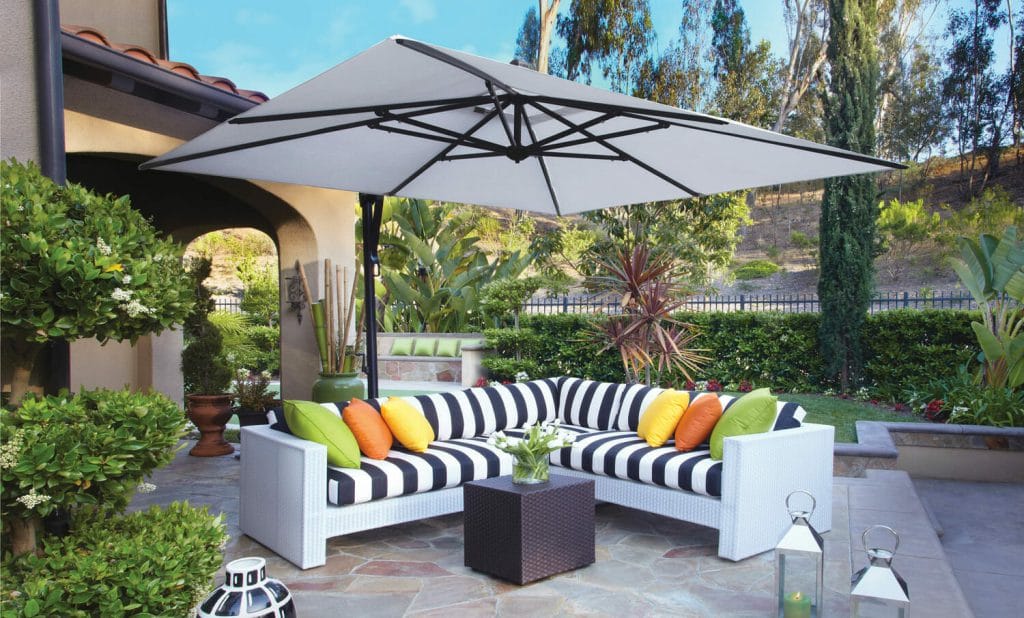Weatherproofing Your Outdoor Furniture: Tips for Longevity and Durability

Outdoor spaces have become integral to our homes. They provide a haven for relaxation, socializing, and even dining. With the rise of complete outdoor kitchen setups and luxurious patio furniture, homeowners are spending more time in their gardens and patios. Yet, the very charm of being outdoors exposes our furniture to nature’s elements. The constant barrage of sun, rain, and wind can lead to significant wear and tear over time. Thus, weatherproofing your outdoor assets is crucial not only to enhance their appearance but also to ensure their longevity.
Why Weatherproofing Matters?
The joy of feeling the sun on your face or listening to the gentle patter of rain is one of the many reasons we love our outdoor spaces. Yet, these very elements, though refreshing, pose threats to our beloved furniture. The sun, while inviting, can be relentless, causing fabrics to fade and wooden pieces to weaken. Rain, when combined with fluctuating temperatures, can induce rot in woods and rust in metals.
These elements not only compromise the visual appeal of our outdoor dining sets and garden umbrellas but also lead to costly replacements or frequent repairs. Recognizing the implications of weather damage is the first step to a proactive approach to preserving the aesthetics and functionality of your outdoor haven.
Types of Outdoor Furniture Materials
Our choices in outdoor furniture often reflect our personal style and the functionality we seek. From the rustic allure of wood to the sleek lines of metal, each material brings its unique charm. However, each also comes with its vulnerabilities:
Wood
Renowned for its natural elegance, wood is a frequent choice for outdoor settings. Whether it’s a classic teak lounge chair or a cedar picnic table, wood evokes warmth. However, it’s also prone to the impacts of moisture and sun, which can lead to cracking, fading, or warping.
Metal
Metals like wrought iron or aluminum are appreciated for their sturdiness. They often feature in designs from ornate Victorian-inspired pieces to more modern, minimalistic styles. Their strength, however, doesn’t make them immune to the threats of oxidation or rust.
Wicker
This woven wonder, often made from plant-based materials or synthetic fibers, offers a blend of comfort and style. Yet, its intricate patterns can become a haven for moisture, and without proper care, wicker can unravel or become brittle.
Plastic
Popular for its durability and affordability, plastic furniture, especially modern polyethylene variants, can rival the aesthetics of more traditional materials. Still, prolonged sun exposure can make them brittle or cause discoloration.
Weatherproofing Tips for Different Materials
Knowing the vulnerabilities of each material guides us toward effective protection:
- Wood: A good-quality sealant is the first line of defense. It provides a barrier against moisture and UV rays. For woods like teak, periodic applications of teak oil can enhance water resistance and maintain its rich color.
- Metal: To prevent rusting and maintain their pristine appearance, metals require coatings of rust-resistant paints and sealants. For aluminum pieces, car wax can be a surprising yet effective protective layer against the elements.
- Wicker: Protect your wicker pieces with specialized sprays designed to shield against UV rays and moisture. Regular cleaning, ensuring the removal of trapped debris between weaves, also prolongs its life.
- Plastic: While these backyard products are often low maintenance, they aren’t no-maintenance products. UV protection sprays can help in retaining their color and strength. A simple routine of wiping down plastic furniture, especially after rains, can significantly enhance their longevity.
Additional Protective Measures
Sometimes, the most effective measures are the simplest ones. Investing in high-quality furniture covers offers an additional layer of protection. These covers can shield your beloved pieces from rain, sun, dust, and even unexpected bird droppings.
Moreover, as winter approaches or during seasons with extreme weather conditions, consider relocating your furniture. Storing them indoors or in a sheltered area can extend their lifespan significantly. And lastly, consistency is key. Regular cleaning and maintenance checks can preempt potential issues and ensure your outdoor space remains inviting and damage-free.
Ensuring the longevity of your outdoor furniture is about recognizing the unique characteristics and vulnerabilities of each material, and then taking proactive steps to enhance their durability. By investing a little time and effort now, you ensure that your outdoor haven remains a source of joy, relaxation, and memories for many seasons to come.
About California Backyard
At California Backyard, our passion is to enhance your outdoor experiences. With our roots deep in Northern California, we pride ourselves on offering top-notch outdoor products and insights. Every piece we provide is a testament to our commitment to quality, longevity, and your satisfaction.
